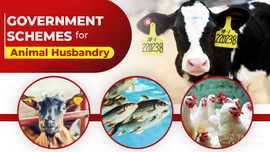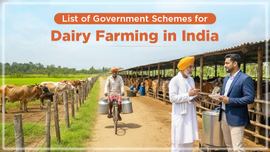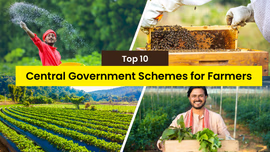Top 15 Central Government Schemes for Farmers in India 2026

Agriculture sector and farmer welfare has been the main focus of successive governments in India. Many farm schemes have been launched, revised, and subsumed with the changing requirement but the focus has always been the agriculture growth and farmer’s prosperity. In this blog, we have covered top 15 central government schemes for farmers in India in 2026 with their key features.
Table of Contents
- Introduction
- Pradhan Mantri Kisan Samman Nidhi
- Pradhan Mantri Kisan MaanDhan Yojana
- Pradhan Mantri Fasal Bima Yojana
- Paramparagat Krishi Vikas Yojana
- Pradhan Mantri Krishi Sinchayee Yojana
- Modified Interest Subvention Scheme
- Agriculture Infrastructure Fund
- Farmer Producer Organisation
- Namo Drone Didi
- Sub Mission on Agriculture Mechanisation
- Soil Health Card Scheme
- National Mission on Edible Oils - Oil Palm
- National Beekeeping and Honey Mission
- Digital Agriculture Mission
- National Bamboo Mission
Introduction
Agriculture is the backbone of the economy which contributes around 20% to the GDP and more than 50% to the total workforce. Due to low productivity in agriculture, price volatility, and variability in monsoon, and natural disasters, Indian farmers en large are in distress as their income is below threshold for living a decent life. To address the issues and concerns in agriculture and enhance farmer’s welfare, the government has launched many schemes. Let us see top 15 government schemes of 2026 in the sections below.
Pradhan Mantri Kisan Samman Nidhi (PM – KISAN)
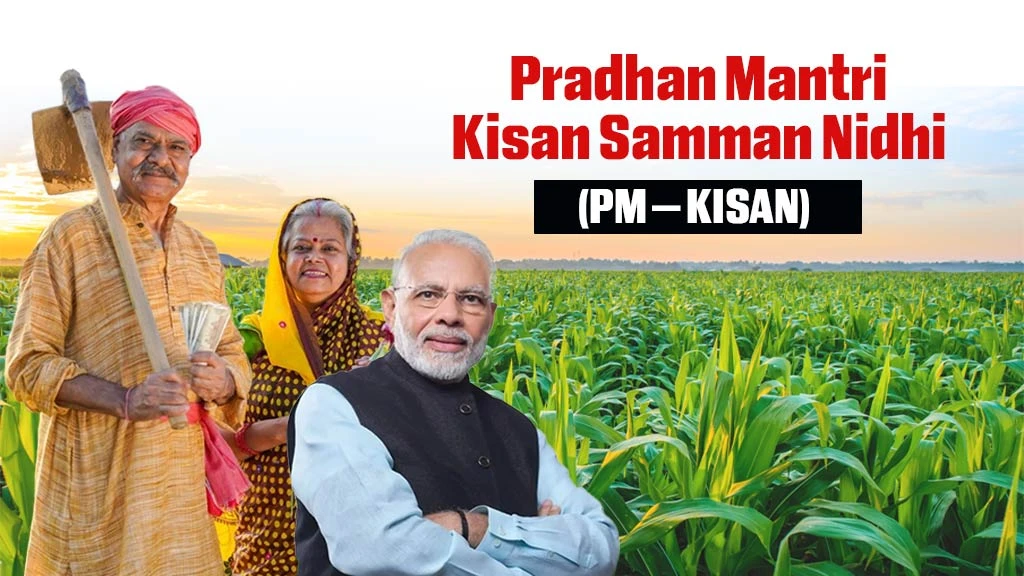
PM-KISAN is a scheme with 100% funding from the Centre, which became operational on 1 December 2018. It was launched by Prime Minister Narendra Modi in Gorakhpur, UP, on 24 February 2019.
Under the scheme, an income support of INR 6,000 per year is provided in three equal instalments to all landholding farmer families. For the purposes of the scheme, a family is defined as husband, wife and minor children. The amount is deposited in the bank account of beneficiaries through Direct Benefit Transfer (DBT) mode.
Pradhan Mantri Kisan MaanDhan Yojana (PM-KMY)
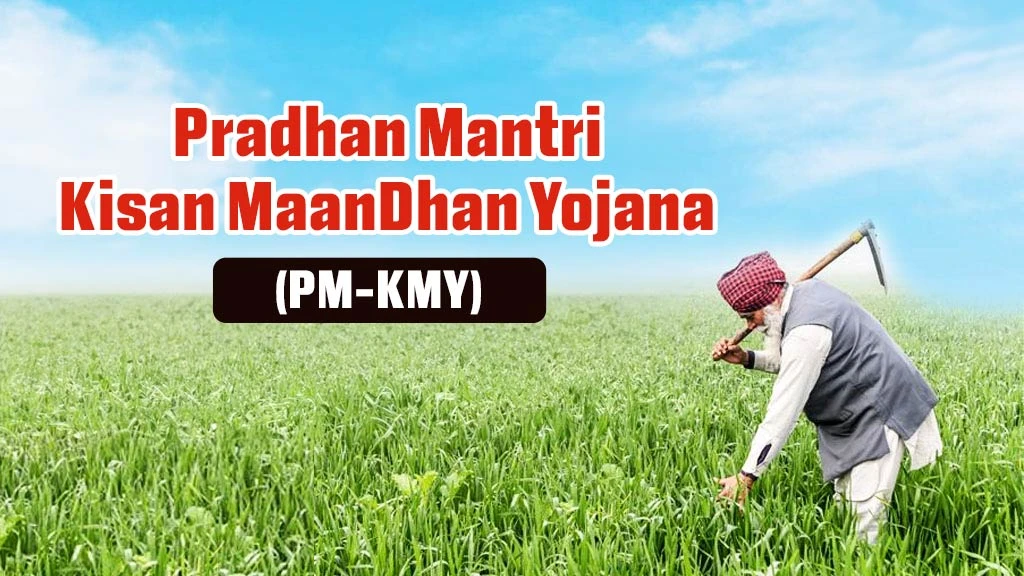
PM Kisan Maandhan Yojana is a contributory scheme which aim to provide a social security cover in form of pension to the most vulnerable farmers families in their old age. The scheme was launched on 12 September 2019.
Under the scheme small & marginal farmers, aged between 18 to 40, can opt to become a member of pension fund by contributing INR 55 to INR 200 per month till they attain the age of 60. Upon attaining the age of 60, the member farmers will get a pension of INR 3,000 per month.
Life Insurance Corporation (LIC) is the pension fund manager of the PM-KMY.
Pradhan Mantri Fasal Bima Yojana (PMFBY)
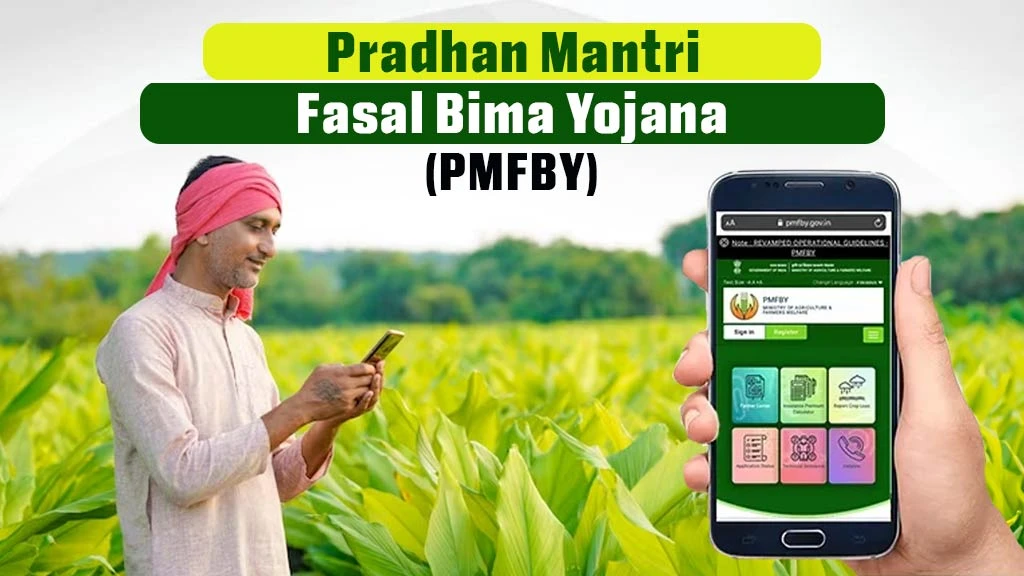
PMFBY is a crop insurance scheme launched in Kharif 2016. It replaces the erstwhile National Agriculture Insurance Scheme (NAIS). The scheme provides all-encompassing risk cover for pre-sowing to post-harvest crop damages caused by non-preventable natural disasters. The low premium rates with respect to sum insured or Actuarial rate, whichever is less, for mitigating risks are:
- 2% for Kharif crops
- 1.5% for Rabi crops
- 5% for annual commercial/horticultural crops.
This Central Sector scheme is demand driven and available for all farmers.
Paramparagat Krishi Vikas Yojana (PKVY)
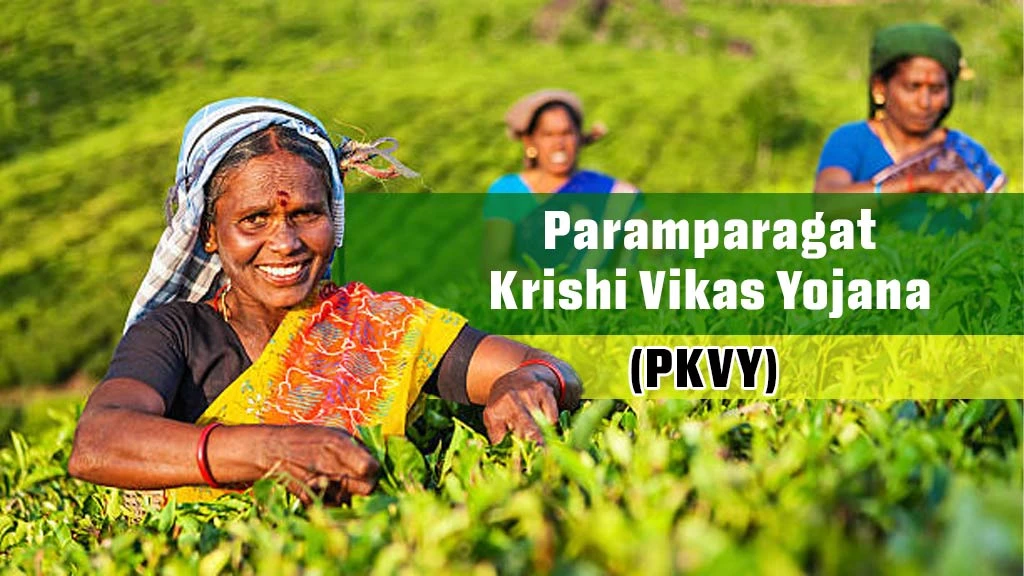
Paramparagat Krishi Vikas Yojana (PKVY) was launched in 2015. It aims to support and promote organic farming in the country, which in turn, will lead to improvement in soil fertility and production of healthy foods.
The scheme envisages creation of clusters of 20 hectares with 20 farmers in each cluster. Each farmer in the cluster can avail benefit of maximum of 2 hectares.
To facilitate the marketing of organic products, 25 such clusters are converted into one large cluster with an area of 500 hectares.
Under the scheme, an assistance of INR 31,500 per hectare is given to the States, out of which INR 15,000 is given as incentives to a farmer through DBT mode.
Pradhan Mantri Krishi Sinchayee Yojana (PM-KSY)
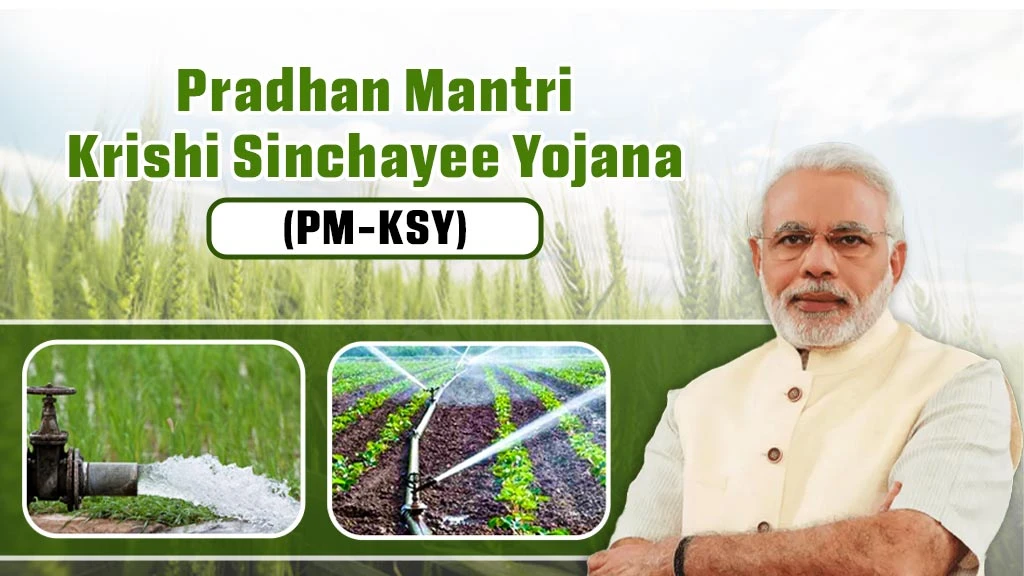
Pradhan Mantri Krishi Sinchayee Yojana (PM-KSY) was introduced on 1 July 2015 with motto ‘Har Khet Ko Paani’. The scheme has four components:
Accelerated Irrigation Benefit Programme for completion of Major, Medium and National projects.
Har Khet ko Paani involves creation of new water sources, constructing rain water harvesting structures (Jal Sanchay) and restoration & renovation of water bodies.
Per Drop More Crop to promote Jal Sinchan through precision water application such as drips and sprinkler.
Watershed Development for efficient management of runoff water and improved soil & moisture conservation activities like rainwater harvesting, drainage line and ridge area treatment.
Modified Interest Subvention Scheme (MISS)
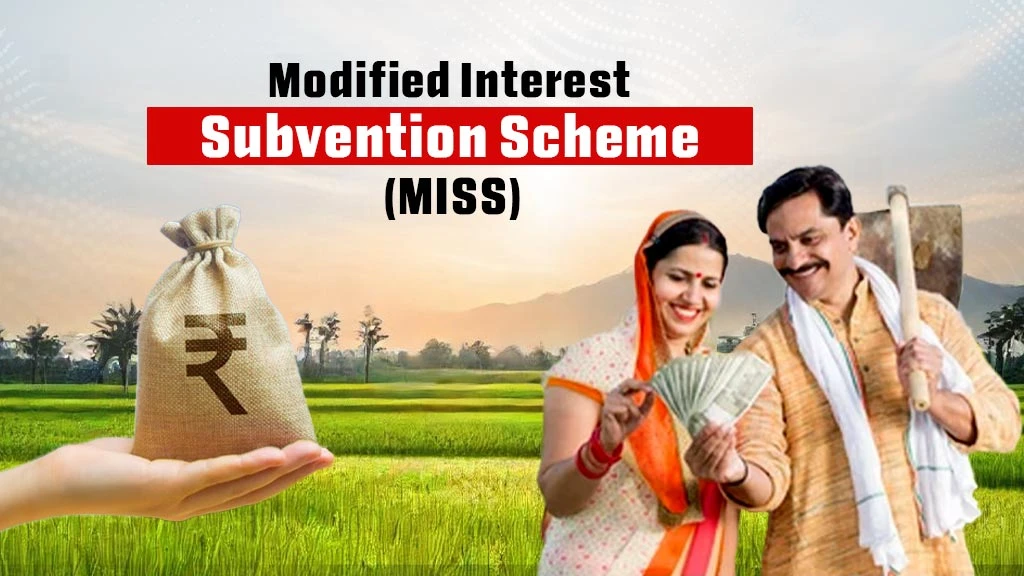
MISS is a variant of Interest Subvention Scheme (ISS) launched in 2006-07. Under the scheme, an interest subvention on the prevailing interest rate is given on short-term agri loans of up to INR 3 lakhs.
The concessional interest rate of 1.50% is provided on the benchmark rate of 9%, which reduces the effective interest rate for farmers availing loan through Kisan Credit Card (KCC) to 7%.
Further, prompt and timely repayment of loan provides additional 3% interest subvention, thus reducing the effective interest rate to 4%.
MISS also covers crop loans for post-harvest to small & marginal farmers having KCC. The subvention is provided for a period of six months in event of natural calamities.
Agriculture Infrastructure Fund (AIF)
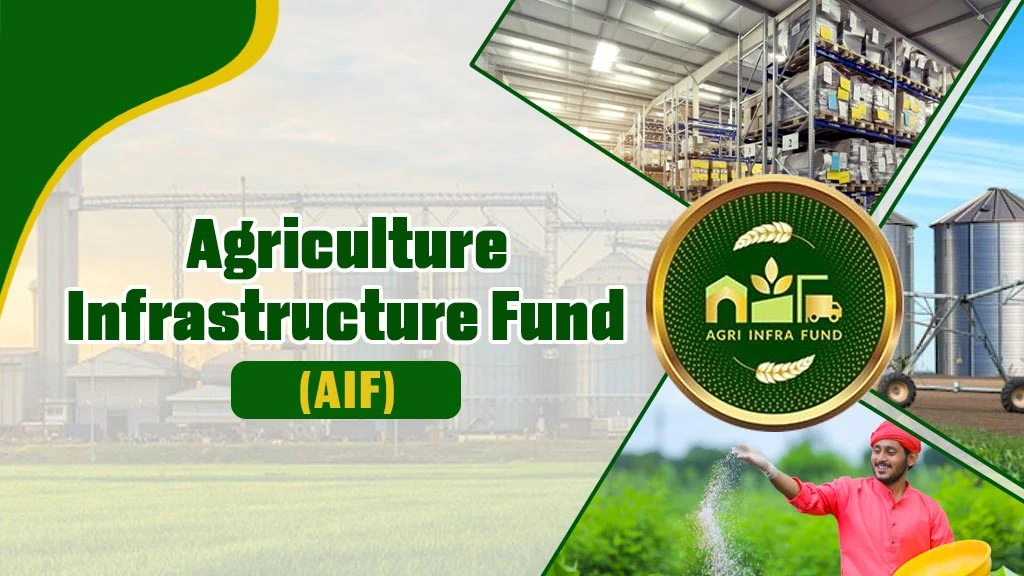
The AIF was launched in July 2020 to bridge the existing infrastructure gaps and mobilise investments in agriculture.
The AIF created with a corpus of INR 1 lakh crore is a medium to long-term debt financing facility for investments in infrastructure for post-harvest management and community farming assets.
Under the scheme, the fund will be disbursed from 2020-21 to 2026-26 and the support will be provided for the duration of 2020-21 to 2032-33.
Farmer Producer Organisation (FPO) Scheme
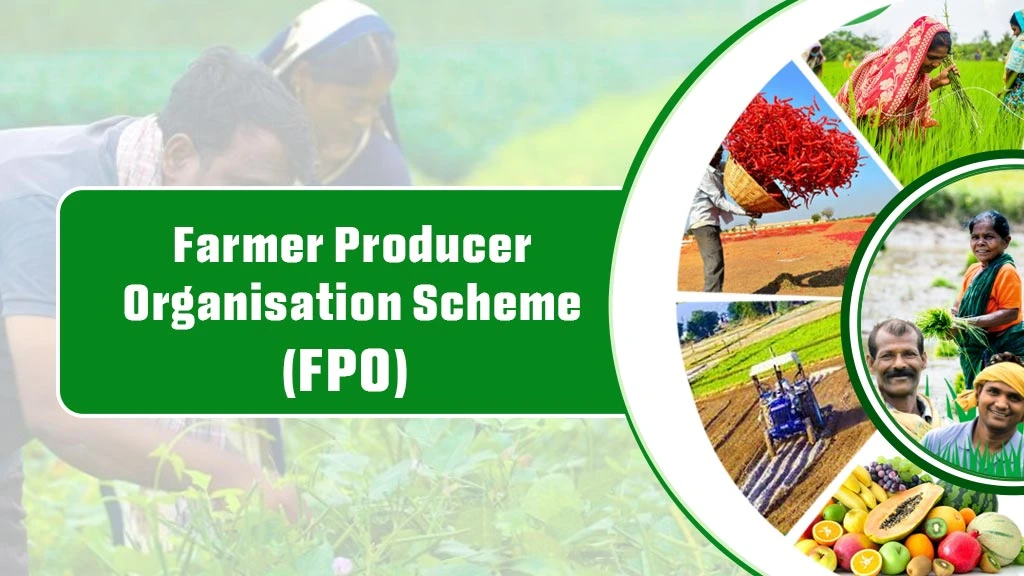
The Formation and Promotion of 10,000 FPO Scheme was introduced in 2020 with a budgetary outlay of INR 6,865 crores. Under the scheme, each FPO will get financial assistance of up to INR 18 lakhs for a period of 3 years.
Besides, it also provides a matching equity grant of up to INR 2,000 per farmer member of FPO with a limit of INR 15 lakhs per FPO. Also, a credit guarantee facility of up to INR 2 crore of project loan per FPO is provided.
Namo Drone Didi
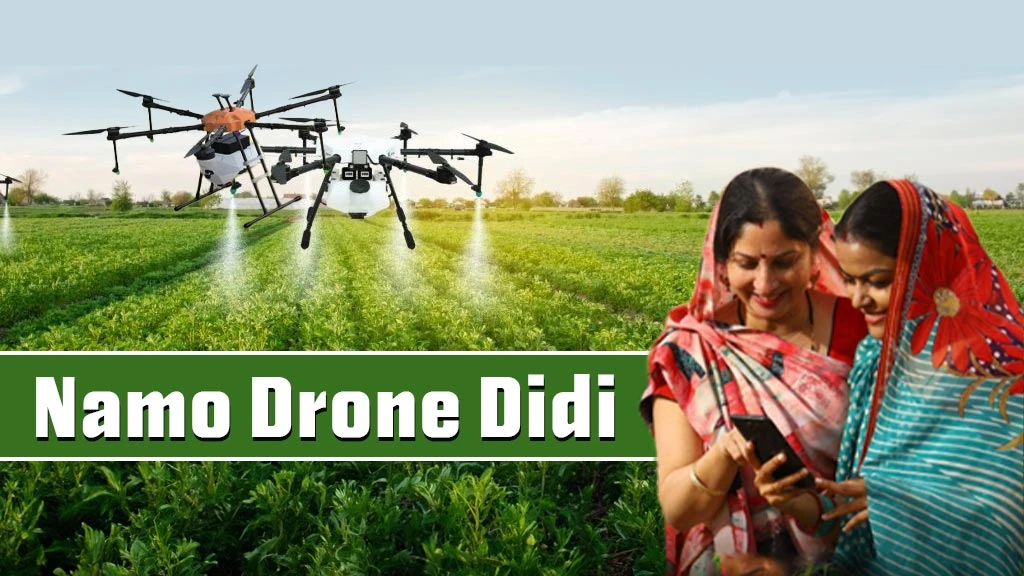
Namo Drone Didi is a Central Sector Scheme that was announced by the Prime Minister Narendra Modi on 15 August 2023. It was launched for the period 2024-25 to 2026-26 with an outlay of INR 1,261 crores.
The scheme seeks to empower women by providing drones to 15,000 selected Women Self Help Groups (SHGs), who will rent these drones to farmers for fertiliser and pesticide application.
The scheme provides a subsidy of 80% on the cost of drones and up to a maximum of INR 8 lakhs to women to purchase drones. Further, the scheme also provides sustainable business & livelihood support so that they can earn extra income of at least INR 1 lakh per year.
Sub Mission on Agriculture Mechanisation (SMAM)
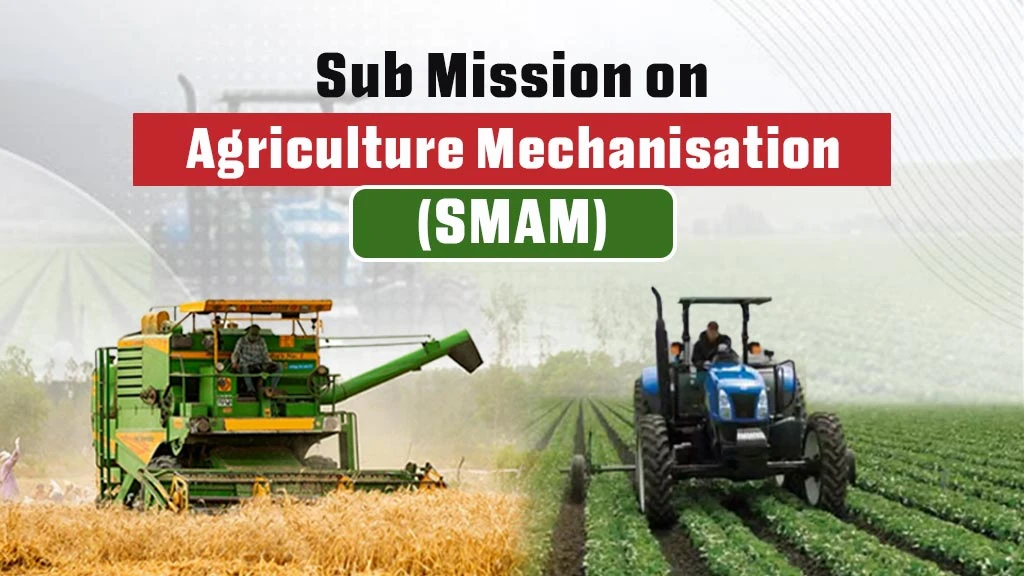
SMAM is a Centrally Sponsored Scheme that is being implemented with effect from April 2014. The Scheme aims to accelerate the spread of agricultural mechanisation in India and make it inclusive.
As part of this mission, a subsidy up to 50% on farm equipment is provided to farmers, especially small & marginal farmers and farmers residing in regions with low farm mechanisation.
Soil Health Card (SHC) Scheme

Soil Health Card (SHC) scheme, launched on 19 February 2015, envisages the issue of SHC to farmers which contains the printed report on the soil nutrient status of his holdings. The report contains the status of 12 parameters and advises the farmers on required doses of fertilisers to improve the soil health & fertility.
The 12 parameters are:
- Macro Nutrients: Nitrogen (N), Phosphate (P) and Potassium (K)
- Secondary Nutrients: Sulphur (S)
- Micro Nutrients: Zinc (Zn), Iron (Fe), Copper (Cu), Manganese (Mn) and Boron (B)
- Physical Parameters: pH value of soil, Electrical Conductivity (EC) and Organic Carbon (OC)
The scheme was launched for a period of 3 years with an outlay of INR 568 crore with motto ‘Swasth Dhara, Khet Haraa’.
National Mission on Edible Oils - Oil Palm (NMEO-OP)
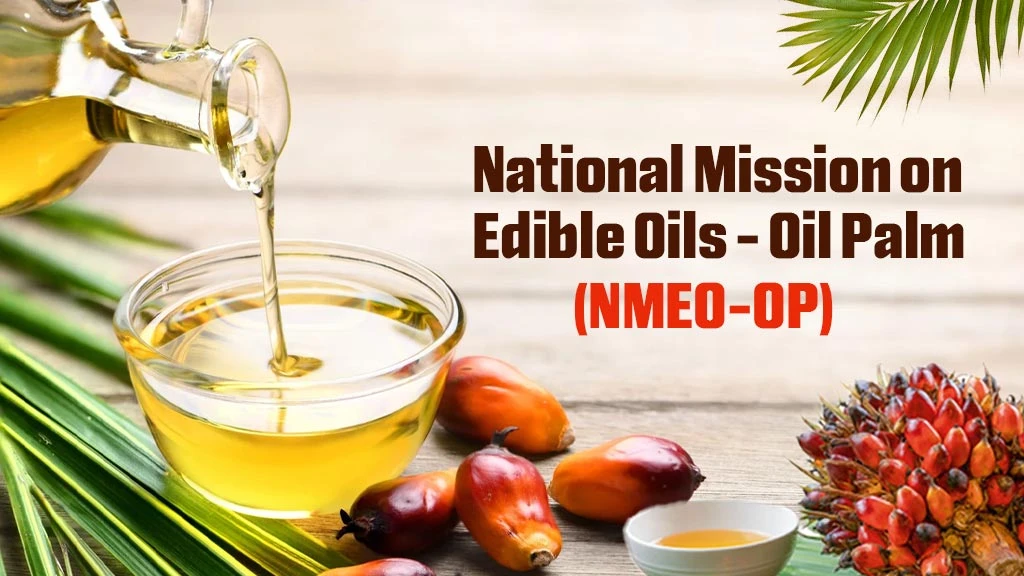
The National Mission on Edible Oil - Oil Palm (NMEO-OP) was launched in 2021 to promote oil palm cultivation in India to make country Aatmanirbhar in edible oils. The scheme has special focus on North East States and Andaman & Nicobar Islands.
Under the mission, an additional area of 6.50 lakh hectares will be brought under oil palm cultivation between the period 2021-22 and 2026-26.
It also envisages increasing the area under oil palm cultivation to 10 lakh hectares by 2026-26 and further to 16.7 lakh hectares by 2029-30.
National Beekeeping and Honey Mission (NBHM)
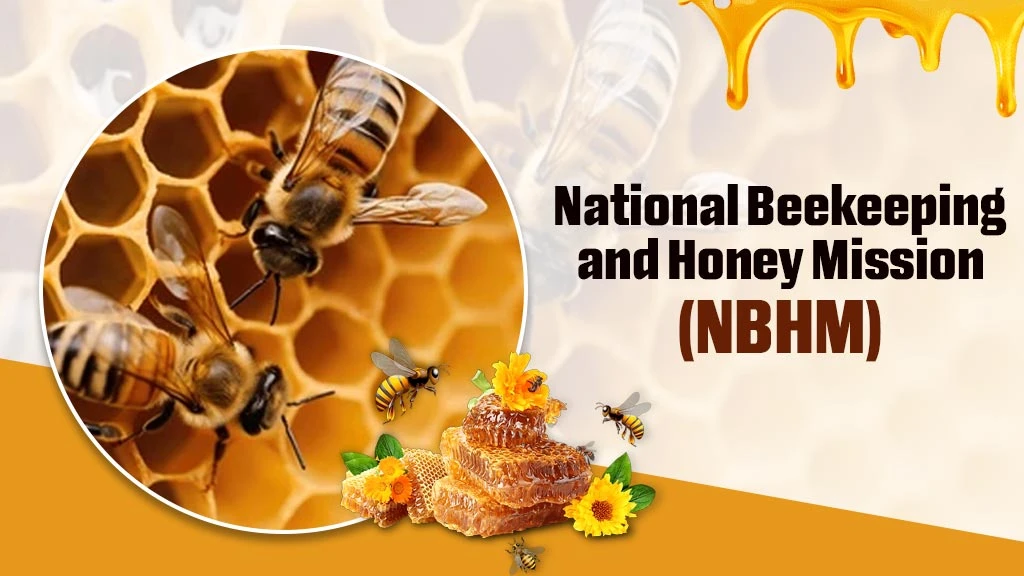
National Beekeeping and Honey Mission (NBHM) was introduced in 2020 to promote and develop scientific beekeeping. It aims to achieve the goal of “Sweet Revolution” in two years.
Under the scheme, training and financial assistance are provided to farmers to start & maintain beekeeping units.
The Scheme has three Mini Missions and these are:
- Mini Mission 1: Production and productivity improvement of various crops through pollination assisted by adoption of scientific beekeeping.
- Mini Mission 2: Post-harvest management of beekeeping/ beehive products with a thrust to develop requisite infrastructural facilities for these activities.
- Mini Mission 3: Research and Technology generation for different Regions, States, Agro-Climatic and Socio-Economic conditions.
Digital Agriculture Mission (DAM)
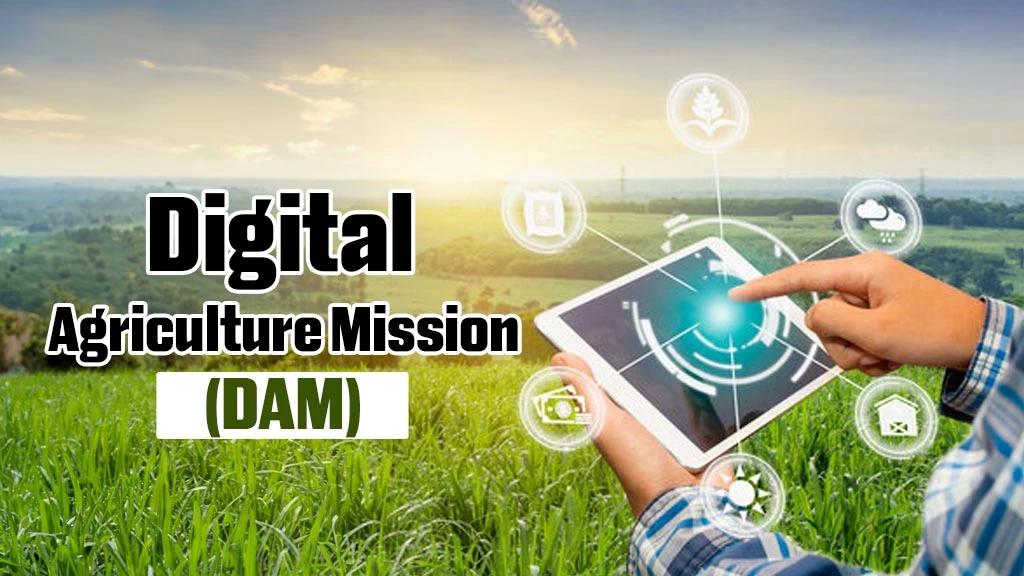
Digital Agriculture Mission (DAM) was approved by the Union Cabinet in September 2024 with an outlay of INR 2817 crore. It is an umbrella scheme that subsumes various digital agriculture initiatives such as creating Digital Public Infrastructure and implementing Digital General Crop Estimation Survey.
The scheme has two foundational pillars, namely, Agri Stack and Krishi Decision Support System. In addition to this, the scheme also includes ‘Soil Profile Mapping’ and enabling farmer-centric digital services for timely and reliable dissemination of information.
National Bamboo Mission (NBM)
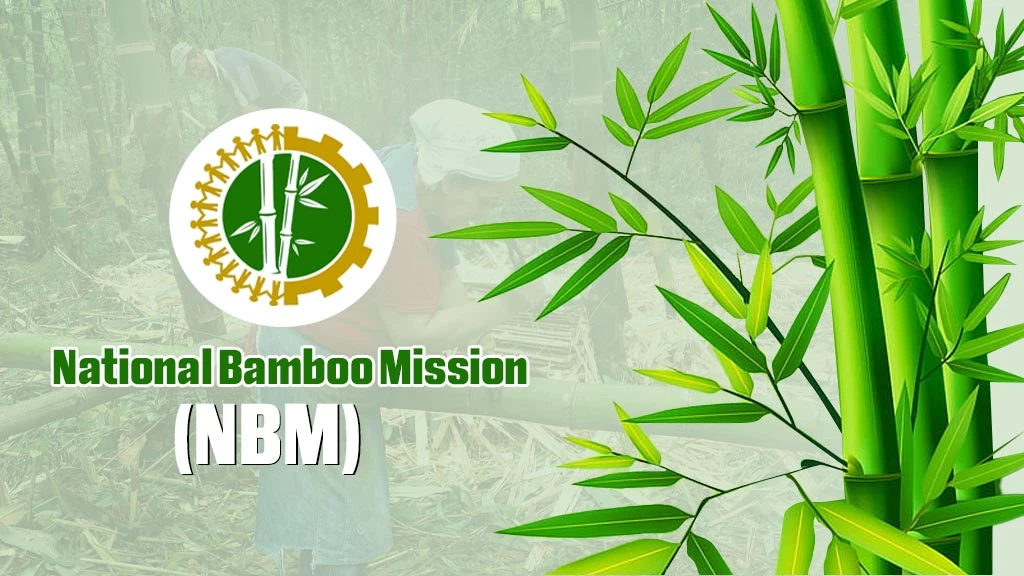
The National Bamboo Mission (NBM), approved by the Union Cabinet in April 2018, seeks to promote the holistic growth of bamboo sector through adopting area-based, regionally differentiated strategy. It is being implemented under the National Mission for Sustainable Agriculture (NMSA) and its main objectives are:
- Increase area under bamboo plantation in non-forest government and private lands.
- Support farm income.
- Contribute towards resilience to climate change.
- Fulfil the industries requirements by making quality bamboo available to them.
- Rejuvenate under developed bamboo industry in the country.


Related Blogs
